Cultural Intelligence: Why do I have to be the one adapting to others?!
It seems that this summer is being the summer of Cultural Intelligence (CQ) in this blog! 🙂
This week I continue my journey exploring Cultural Intelligence and its relationship with the Globalization / Localization industry.
Last Friday I had the opportunity together with Tina Merry to give a workshop on CQ for a group of talented videogames artists.
It was a very interesting session since we all share cultural anecdotes. More than a presentation was a conversation, and I love when that happens when presenting.
From everything we talked about, there was a question that I want to elaborate a little more today, here and now, with the tranquility that Ludovico Einaudi gives me and a cup of steaming Espresso Arabica coffee I'm tasting.
The holy grail question every time I talk about CQ is
“Why do I have to be the one who changes when interacting with other cultures?
”
Every time I talk about CQ sooner or later that question comes out.
And the truth is that it is a question that presents an interesting dilemma.
- How much do I need to adapt when interacting with different cultures?
- If cultural diversity is all about being yourself at work, if it's all around the idea "Bring your whole self to work"
- Why do I have to be the one to adapt?
For example, if I am a person who values planning, document processes, and predictive results, and I am working with other people who feel more comfortable improvising and without needing to document anything, then what happens? Do I have to adapt to something I do not like?
How do I develop my CQ in these situations? and what really bothers us ... why do I have to be the ONE that adapts to this situation and not THEY are the ones that adapt to me?
This is a problem that all of us who work in the Globalization / Localization industry suffered. A problem that Sofia Coppola brilliantly narrates in the great movie Lost in Translation, one of my favorite films of all time, a film that tells brilliantly how I have felt (and many other colleagues in the industry) traveling through countries to meet with clients, with suppliers or with remote equipment, and arriving in countries where we feel misunderstood, out of place. And yes, I also ended up singing in karaokes in other countries like Bill Murray and Scarlett Johansson in one of my favorite scenes.
It is in those moments when we have to get more than ever of our CQ and understand, that we are not really Lost in translation ... maybe we are simply in a process of internal transformation.
So, how do I develop my CQ without getting lost in the process? Perhaps of all the material that I have read, the studies of Adam Molisky are the most useful to me. Adam explains the 3 phases that we must face in order not to get lost in the process of adapting to a culture. I allowed myself to adopt a fourth.
1. Resentment
A few years ago I remember a localization project we were doing for a Dutch client and I was surprised by the feedback they gave me. They had no problem giving negative feedback, direct, no edulcorated feedback!
"Miguel the way you want to implement the maintenance of Termbase is a disaster and I believe that it will not work, because of this, because of this and because of that" ouch! That hurts!
Where is the sandwich model that I learned while working in American companies like Lionbridge
Why in Holland the feedback was so direct, why so rude? Over time I learned to appreciate this type of feedback, it is not rude, it is just effective, it is honest and it is efficient. I tried to apply this type of feedback when interacting in this type of Dutch environment, but I had 2 problems: authenticity and performance
2. Authencity
I felt that there was a certain internal conflict between my core human values and how I was behaving. For me giving direct negative feedback was difficult, I did not feel authentic; for me, the sandwich feedback model is the one that made me feel authentic. So there my CQ has the first problem to develop. The Authenticity phase is a risk to finish "Lost in translation"
3. Performance
Through a series of techniques from a model taught by Adam in his book Global dexterity, we can learn to feel authentic and not reject the skill we want to learn. I will talk about these techniques in future posts, but the interesting thing for me was discovering that there was a method that allowed me to develop my CQ and silence my reptile brain.
When I studied this technique of giving direct feedback, I understood it; I no longer felt unauthentic, I began to incorporate it into my repertoire of soft skills; there was a time when I no longer had an authenticity problem ... but I had a performance problem: I just did not know how to give negative feedback in an effective way. So that is the other problem that we face, learn a new skill and practice it until we get it right.
4. Decision
I might be:
- willing to change (no resentment),
- might feel not fake and comfortable in an environment different from mine (no authenticity conflict)
- I might be also good at applying the skills necessary to do the job in a proper way (no performance problems),
But, that ...does not automatically mean that I have to adapt my behavior. That might cause a conflict with my values as a person ... and then, it is when we are in danger of losing ourselves in the process. Let's see this with an example.
Let's imagine that I am an extremely punctual person, one of those persons who never arrive late, who often arrives even earlier! Imagine that in my core value, being punctual means: respect towards the other person.
Let's think for a moment that I am working in a culture where punctuality is not so important, that arriving 15 minutes late (or more) is not a problem.
I'm going to get a moment that thanks to my CQ I understood how that culture works and its sense of Schedule (CQ Knowledge) (picture), but even knowing that, I may decide that I do not want to adapt to that specific aspect of that culture. I could, but I do not want to. That would be a conflict with my core values, my principles that punctuality is a sign of respect towards the other person. That is the decision phase, having the ability to decide when I adapt and when not. When I decide to be in Lost in translation as I like to say to myself, or Without losing yourself in the process as Adam Moliskey explains us in his book.
The world of CQ not all situations are going to be white (that I will adapt always) or black (that I never adapt), there are gray tones in which we will evaluate whether we want to adapt or not. CQ is not binary, CQ is not all or nothing, that is the beauty of CQ, and that is why CQ is a skill that is worth, developing
In my next CQ post I will talk about the steps to develop our CQ and how is that model that we can use to win our reptilian brain the battle of the Should I adapt to others or not (picture)
But before I leave you with a question to all the globalizers/ localizers of the world...
Do these different phases of adapting to a culture resonate with you?
Do you recognize yourself fighting the phases I described above?
Have a great week and I wish you success in the CQ development journey!
@yolocalizo
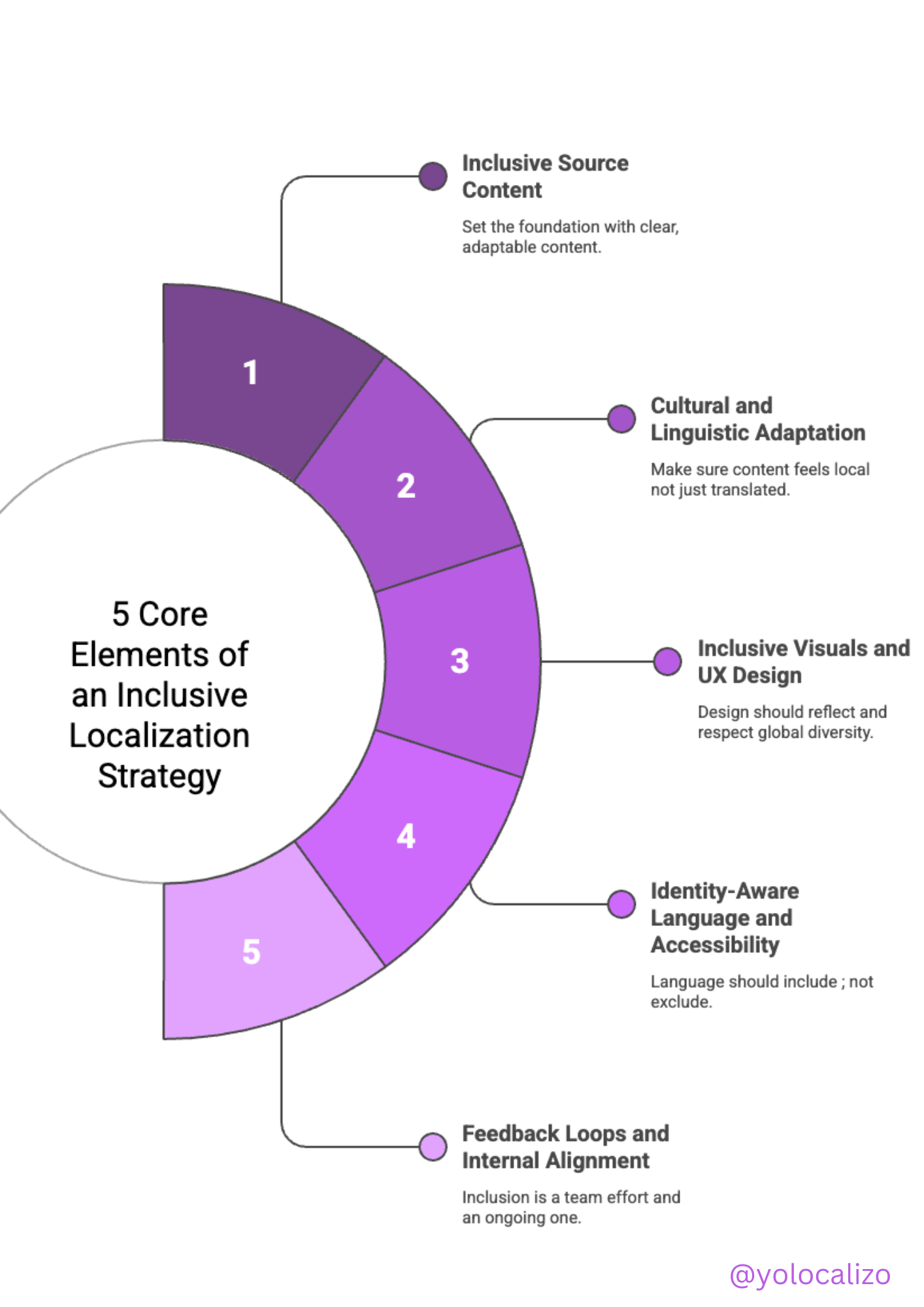

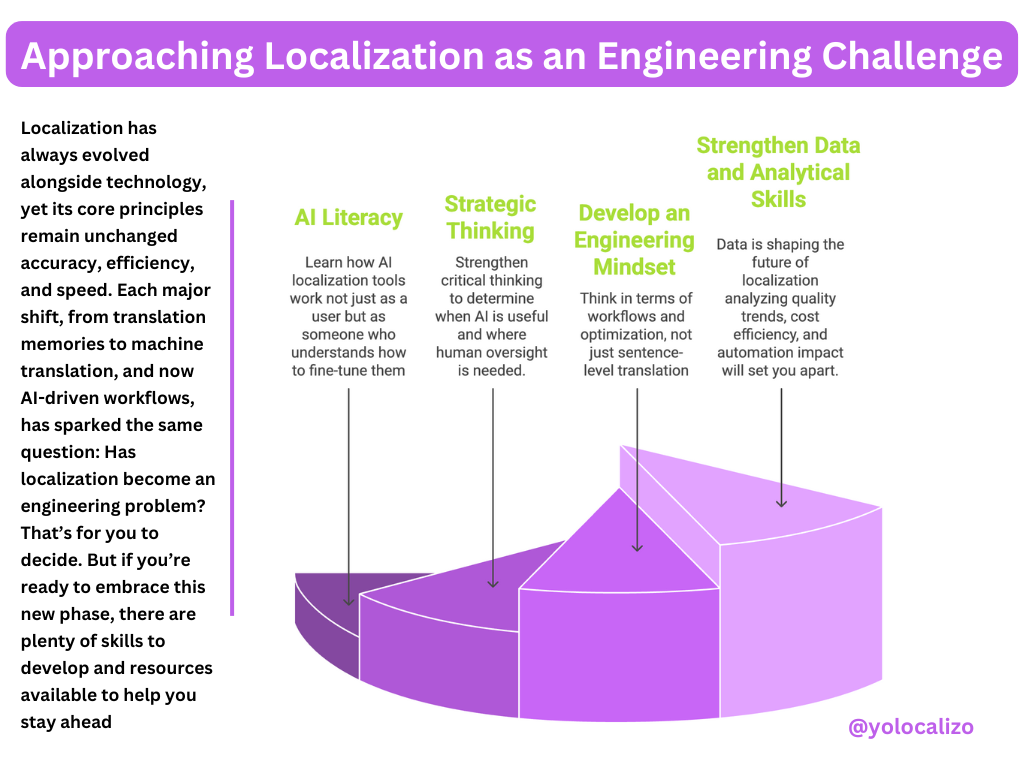
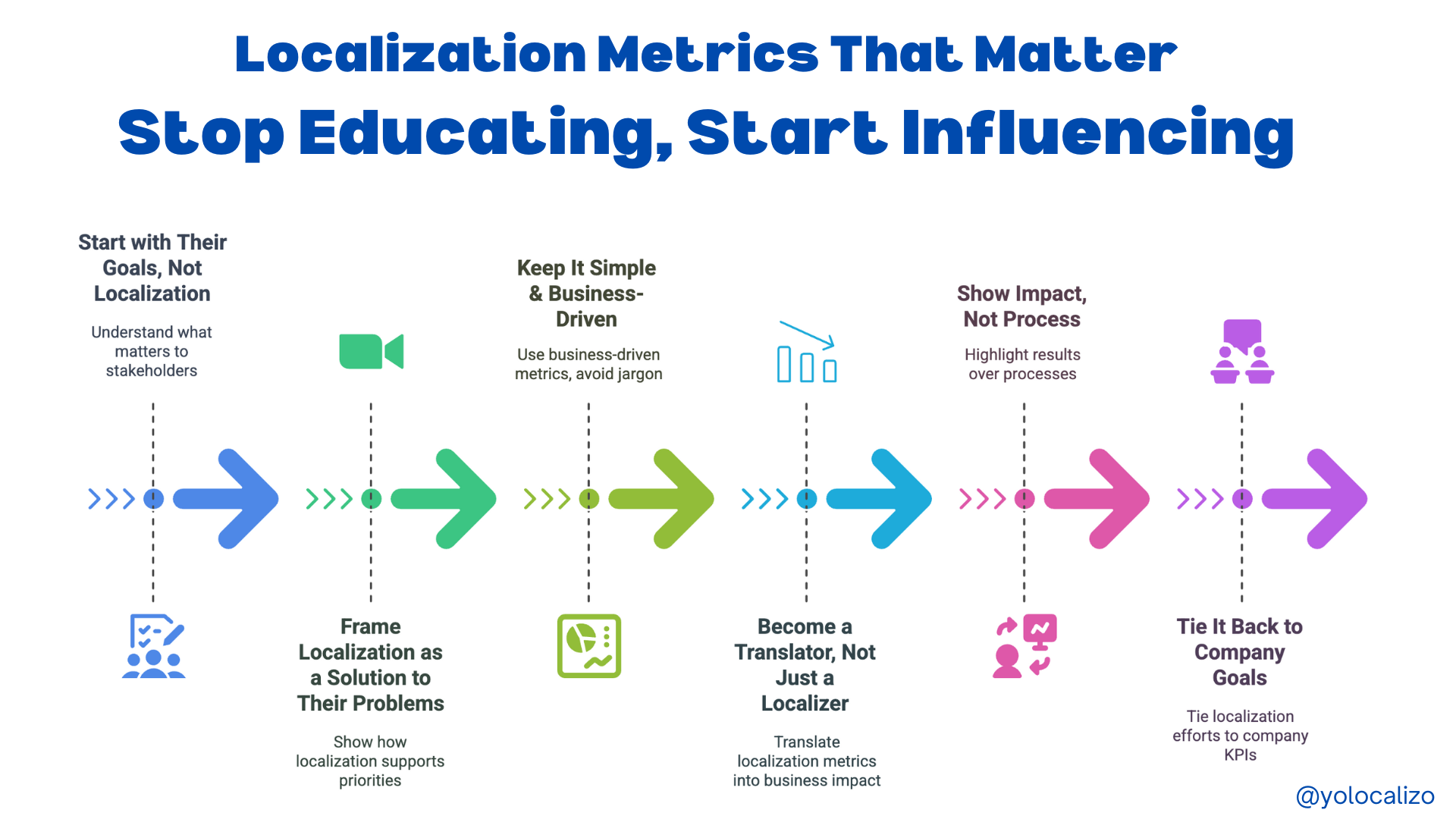


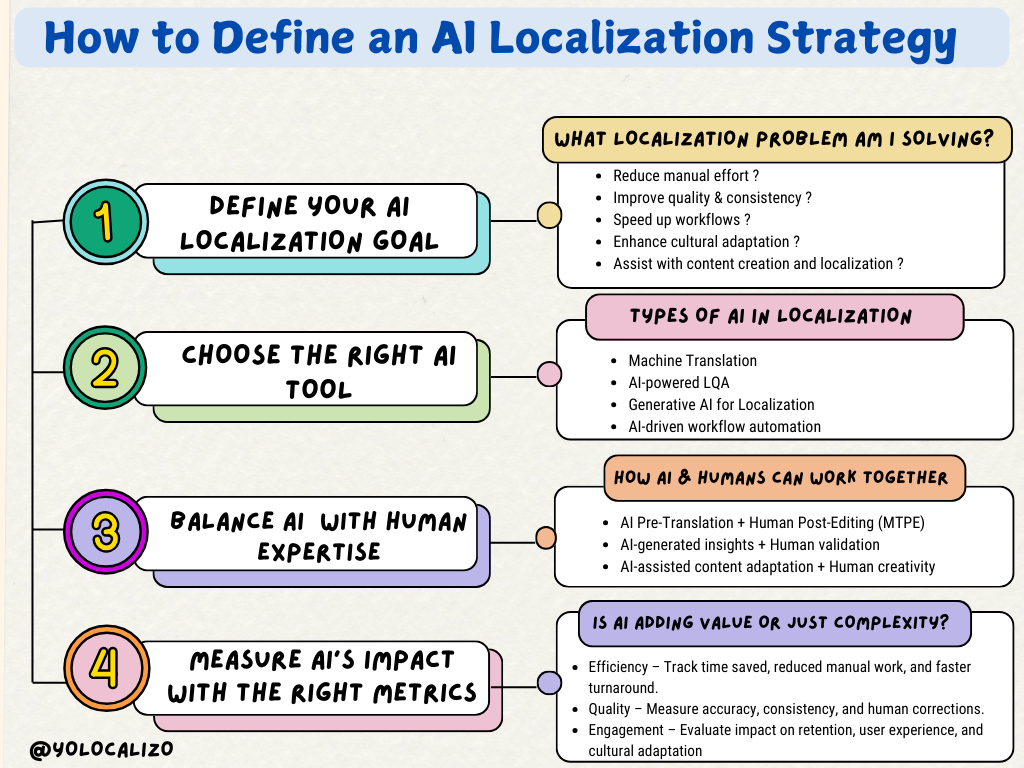




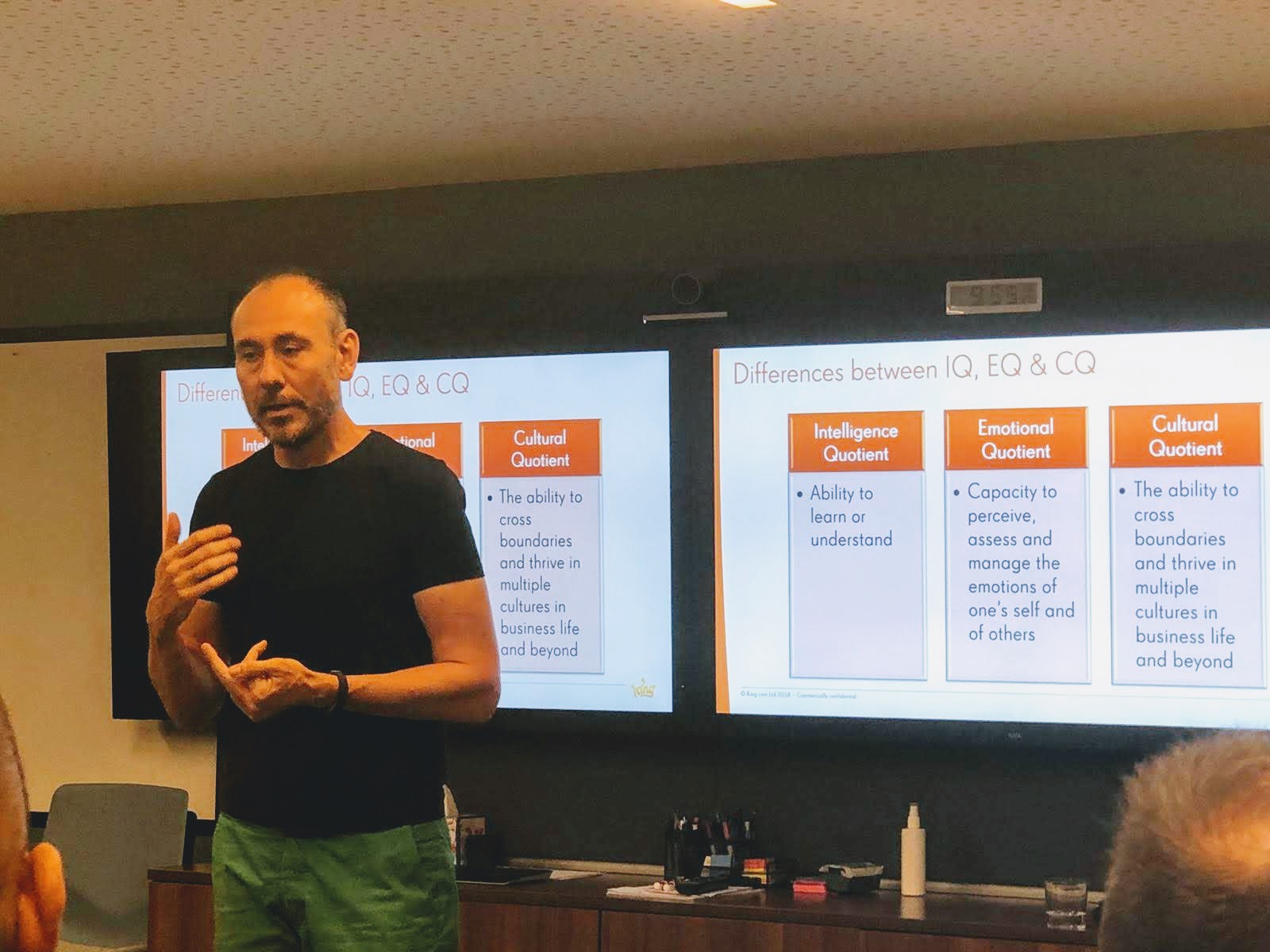
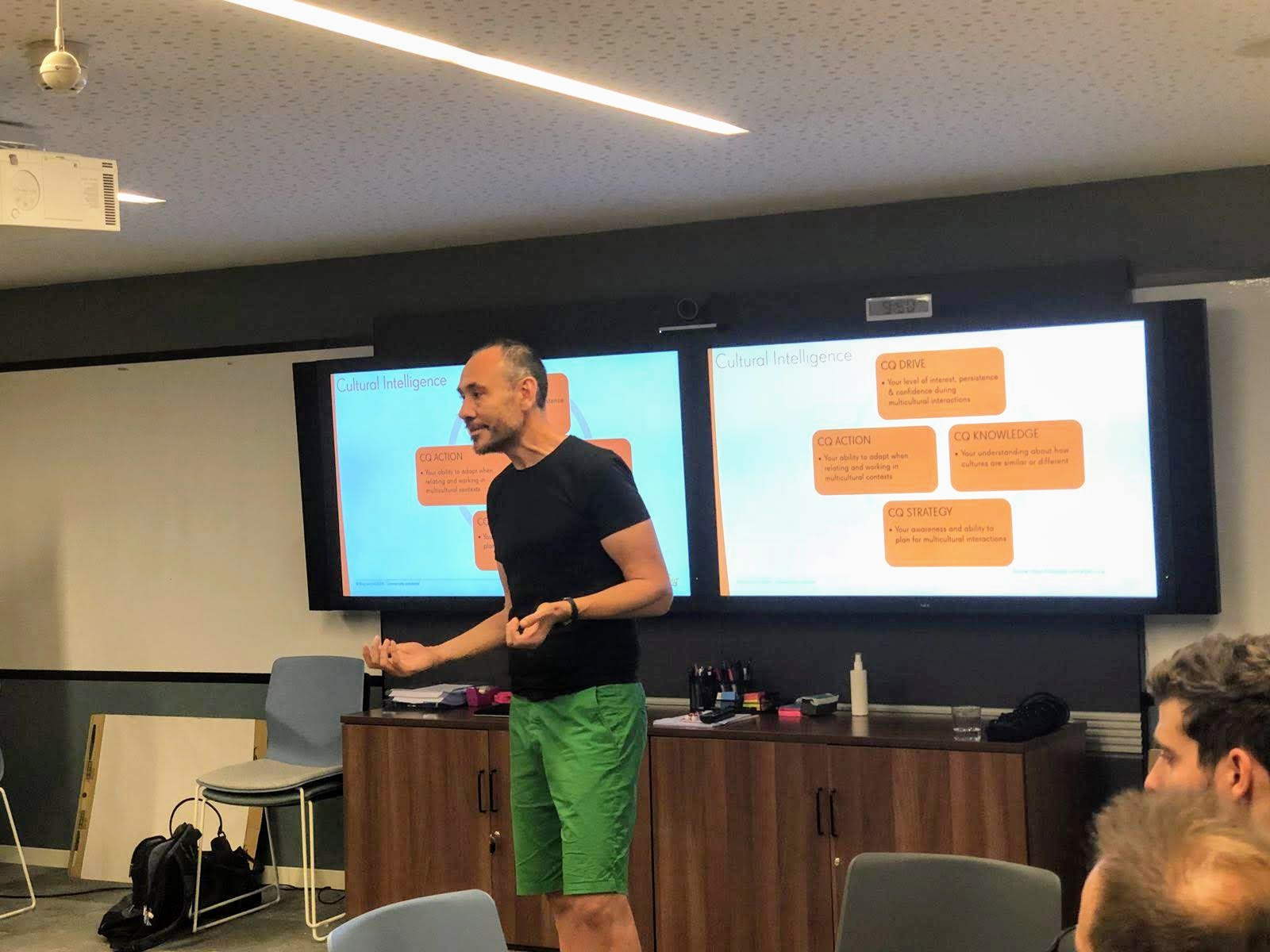






Localizability has always been a challenge small issues in source content often lead to big problems later in translation. In this post, I explore how AI is giving localization teams a powerful new way to improve source quality, reduce friction, and create better content for every market right from the start.